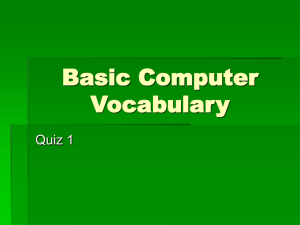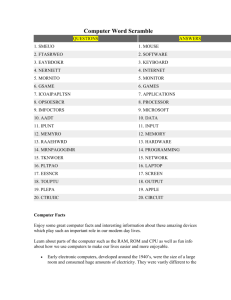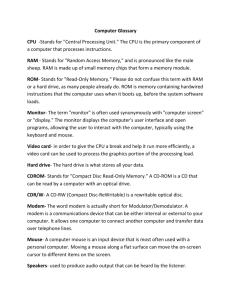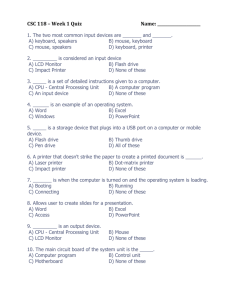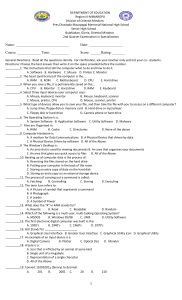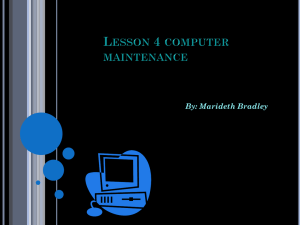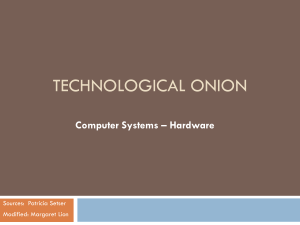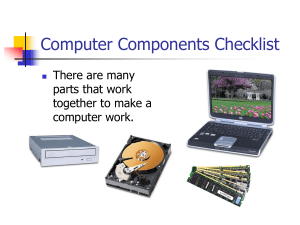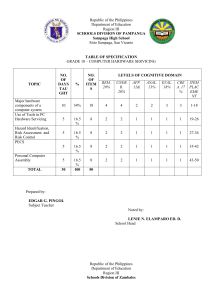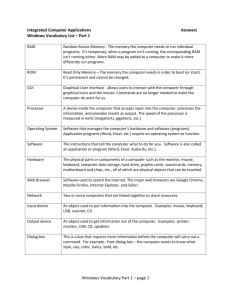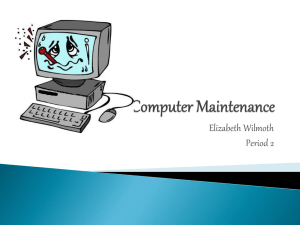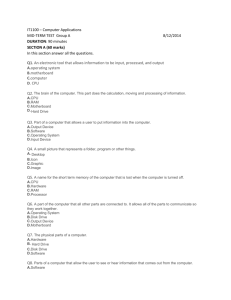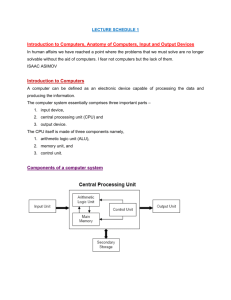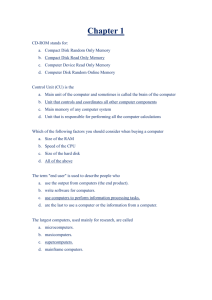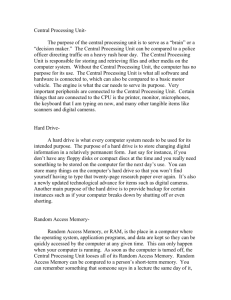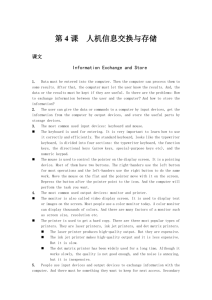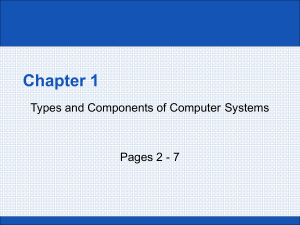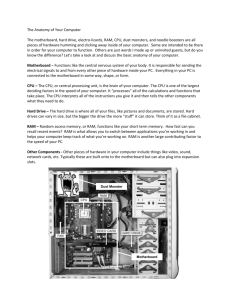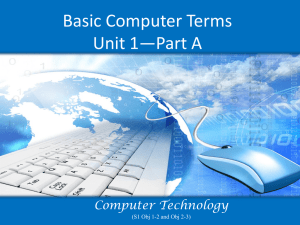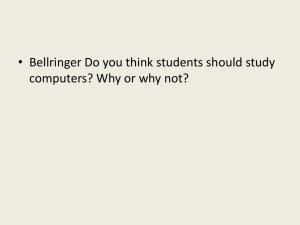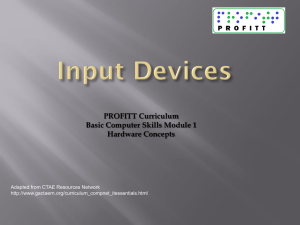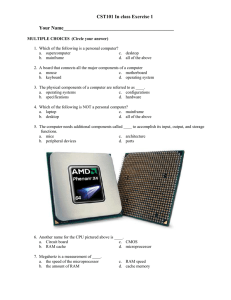Computer Basics Study Guide Monitor CPU Mouse Keyboard
advertisement
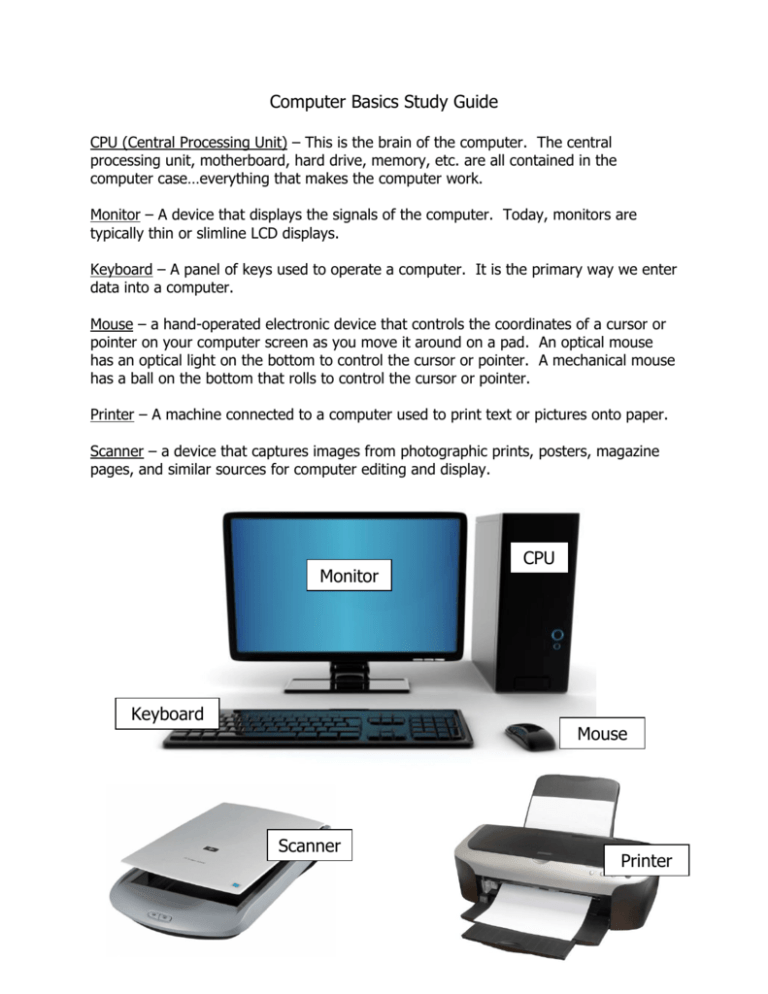
Computer Basics Study Guide CPU (Central Processing Unit) – This is the brain of the computer. The central processing unit, motherboard, hard drive, memory, etc. are all contained in the computer case…everything that makes the computer work. Monitor – A device that displays the signals of the computer. Today, monitors are typically thin or slimline LCD displays. Keyboard – A panel of keys used to operate a computer. It is the primary way we enter data into a computer. Mouse – a hand-operated electronic device that controls the coordinates of a cursor or pointer on your computer screen as you move it around on a pad. An optical mouse has an optical light on the bottom to control the cursor or pointer. A mechanical mouse has a ball on the bottom that rolls to control the cursor or pointer. Printer – A machine connected to a computer used to print text or pictures onto paper. Scanner – a device that captures images from photographic prints, posters, magazine pages, and similar sources for computer editing and display. Monitor Keyboard CPU Mouse Scanner Printer Computer: An electronic device that can store, retrieve, and process data. Kinds of Computers: Desktop, laptop, tablets, smartphones, and even some gaming consoles and TVs 2 Styles of Computers: PC and MAC 2 Parts to Computers: Hardware and Software Hardware – The physical components of a computer that you can see and touch. Examples: Monitor, CPU, Keyboard, Mouse, Printer, and Scanner Input Devices – Any peripheral (piece of computer hardware equipment) used to provide data and control signals to an information processing system such as a computer. This is how we get information into the computer. Examples of input devices include keyboards, mice, scanners, digital cameras and joysticks. Output Devices – Any piece of computer hardware equipment used to communicate the results of data processing carried out by the computer and converts the electronically generated information into human-readable form. This is how we get information out of the computer. Examples: Monitor, Printer Software – A set of instructions that tells the computer what to do. Software applications are designed for a specific purpose. Examples: Microsoft Word, Microsoft PowerPoint, Games, Internet Explorer, Windows operating system The MOST important piece of software is the operating system because it allows us to communicate with the computer, allows the computer to boot up, and manages the computer’s memory and resources. The operating system we use on PCs is Windows. Every computer must have an operating system before any other software applications can be installed. Cloud Storage – Data and files are stored on Internet servers so that you can access them remotely. This means once you’ve uploaded and saved your files through a site on the Internet (like DropBox), you can access those files from anywhere in the world as long as you have Internet connection. Inside the Computer Inside the computer case, you will find all the important pieces that make a computer work. There is a central processing unit, motherboard, hard drive, and other components such as network card, sound card, and RAM. Hard Drive: The hard drive is the data center of the computer. This is where the software is installed, and it's also where your documents and other files are stored. The hard drive is longterm storage, which means the data is still saved even if you turn the computer off or unplug it. RAM: RAM is your system's short-term memory. Whenever your computer performs calculations or opens a software application, it temporarily stores the data in the RAM until it is needed. The more RAM you have, the more programs you can open at the same time.
